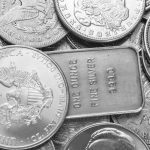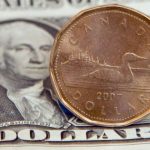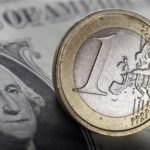The pound declined for a third day against the US dollar, after official data showed US retail sales rose more than expected last month, adding to evidence the US economic recovery is gaining traction.
GBP/USD hit a session low at 1.6697 at 12:35 GMT, after which consolidation followed at 1.6715, losing 0.1% for the day. Support was likely to be received at April 8th low, 1.6607, while resistance was to be met at April 11th high, 1.6788.
Greenbacks demand was heightened after it became clear that retail sales in the US rose at the fastest pace since September 2012.
Retail sales in the United States increased 1.1% in March on a monthly basis, exceeding analysts estimates of a 0.8% gain, data by the US Census Bureau showed today. In February sales rose 0.7%, that was higher than previously reported. The report on retail sales reflects the dollar value of merchandise sold within the retail trade by taking a sampling of companies, operating in the sector of selling physical end products to consumers.
US core retail sales (retail sales ex autos) rose 0.7% in March compared to a month ago, beating analysts estimates of a 0.5% advance and following a 0.3% increase in February. This indicator removes large ticket prices and historical seasonality of automobile sales.
“It really is a story of pent-up demand,” said Russell Price, a senior economist at Ameriprise Financial Inc. in Detroit, who is the best forecaster of sales in the last two years, according to data compiled by Bloomberg. “As employment levels continue to improve at a modest pace, so too should consumer spending.”, he added, cited by the same media.
Meanwhile, the Bank of England Monetary Policy Committee (MPC) left the benchmark interest rate unchanged at a record-low 0.5% on Thursday, in line with analysts’ forecasts. The key rate has been at this level since March 2009.
At the same time, the monthly pace of bank’s monetary stimulus was also left intact, at 375 billion GBP per month, in line with market players’ expectations. The central bank issues new money in order to purchase gilts from private investors such as pension funds and insurance companies.
While BoE Governor Mark Carney has pushed back against market expectations for an imminent interest-rate hike, citing that more slack in the economy should be absorbed before raising borrowing costs, the members of the MPC were divided as to what is the exact amount of spare capacity in the economy.
The UK trade deficit narrowed to 9.094 billion pounds in February, exceeding analysts’ expectations for a drop to 9.200 billion pounds from 9.793 billion pounds in the previous month, which was the highest since September last year, data by the Office for National Statistics (ONS) showed yesterday.
According to estimates by the IMF, the British economy will expand at the fastest pace among developed nations, which provided further support to the pound.
The UK economy will expand 2.9% this year and 2.5% in 2015, IMF reported on April 9 in its World Economic Outlook. The International Monetary Fund forecast in January that the nation GDP will grow 2.4% this year and 2.2% in 2015. However, the fund underlined that the recovery of the economy remains uneven and the central bank of the country should continue with its accommodative policy.





